Kativik Regional Government
Launching new services for Nunavik.
Took place on March 12, 2025 online.
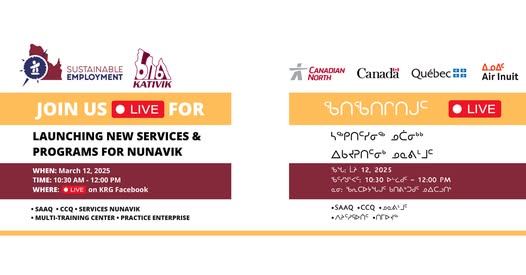
First Nations Human Resources Development Commission of Quebec
First Nations and Inuit Regional Forum of Saguenay–Lac-Saint-Jean
March 19 and 20, 2025
The First Nations and Inuit Regional Forum of Saguenay–Lac-Saint-Jean, scheduled for March 19 and 20, is a key event to address labour market challenges, including the labour shortage. Organized by the First Nations Human Resources Development Commission of Quebec (FNHRDCQ), it aims to offer innovative solutions and adapted programs to facilitate the integration or reintegration of First Nations and Inuit members into the labour market. This forum will be a place for collaboration, networking and development, combining innovation and inclusion for a better future for all participants.

MAMU! First Nations and Inuit Job Fair 2025
May 15, 2025 – Val D’Or
The MAMU! First Nations and Inuit Job Fair 2025, organized by the FNHRDC, is a key event aimed at strengthening relationships between First Nations and Inuit businesses and communities. It provides a unique opportunity to connect businesses with skilled First Nations and Inuit talent, while encouraging diversity and inclusion within organizations.
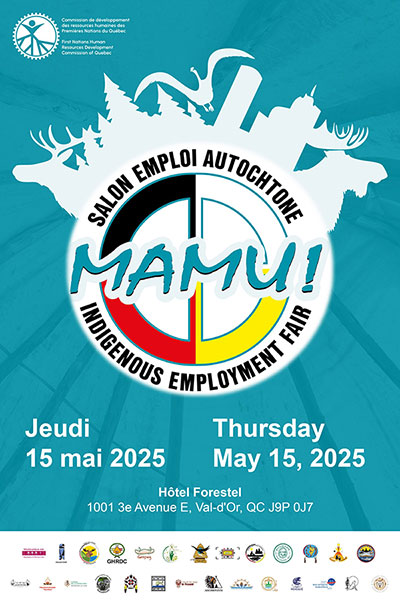
Community of Practice Advisory Committees
The Advisory Committee Symposium
April 23, 2025 at Laval
This event is reserved for CCs members only.
The members of the eight advisory committees will meet to learn about intersectionality and to exchange and collaborate on cross-cutting issues for the populations concerned.
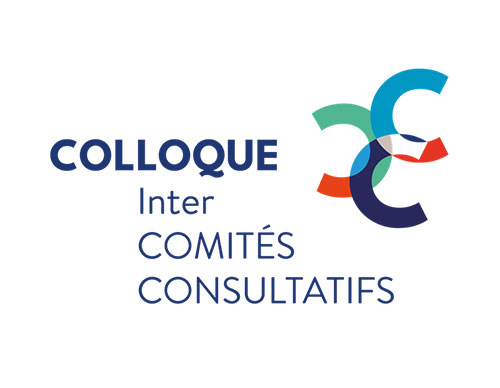
First Nations and Inuit Regional Forum (FNIRF)
The First Nations Inuit Regional Forums are held and organized by the First Nations Human Resources Development Commission of Quebec (FNHRDCQ), with the financial support of Services Québec, Services Canada and the First Nations and Inuit Labour Market Advisory Committee (FNLMAC), under the theme “Unite and invest to succeed“.
The main objective of these Forums is to increase the participation of First Nations and Inuit members in the labour market, in collaboration with labour market players in the regions
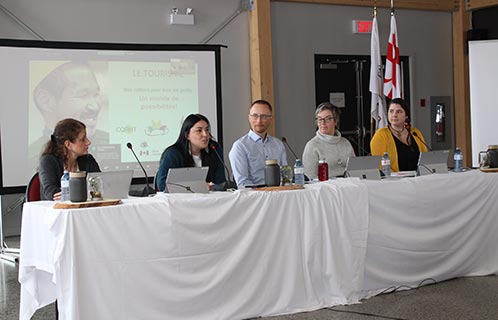
Gaspésie and Îles-de-la-Madeleine
The second edition of the First Nations and Inuit Regional Forum took place on March 15 and 16, 2023, in the Gaspésie-Île’s-de-la-Madelaine region and simultaneously on the WEB. The 2 days provided an opportunity to discuss the challenges, successes and potential solutions related to the development of the FNI workforce in the region.
Presentations on the various themes demonstrated that FNIs are eager to contribute to socio-economic development, and that several programs and tools exist to support employers wishing to recruit an FNI workforce.
The consultation that closed the event raised existing obstacles. This was followed by recommendations to meet the needs of companies and FNI members in the region.
A hybrid participation
A total of 186 people registered to take part in the Forum in person or online on the Zoom platform. In addition, a live YouTube link was also available to view the event live, enabling a greater number of participants to be reached.
March 15 : 45 people in person, 87 participants connected via the Zoom platform and 170 views on YouTube
March 16 : 47 people in person, 85 participants connected via the Zoom platform and 119 views on YouTube
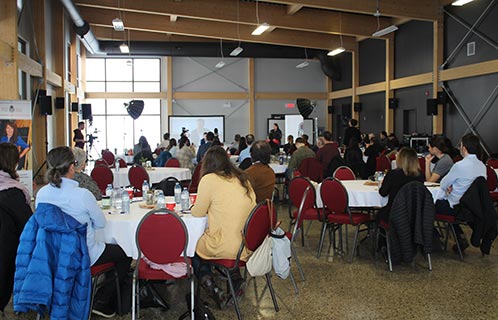
Recommendations
Here are the main recommendations for increasing the participation of FNI members in the job market, in collaboration with market players.
- Create residences for students in training and for FNI in transition from the communities to the city;
- Create day-care services for FNI clientele on skills development programs and on programs to help them integrate the LM;
- Develop francization training programs in the workplace;
- Create a service trajectory tool for the integration of FNI into the LM;
- Hold an annual regional forum across the various regions of the province of Quebec to maintain a continuum of services adapted to the needs of businesses and increase the participation of FNI members in the LM;
- Develop partnerships between collaborators in order to promote on-the-job training and respond to labour shortages, and thus gain faster access to certified training;
- Create liaison officer positions that would primarily support companies in staffing FNI HR;
- Create collaborations between the various players to hold “open days” for the public and communities in the different companies. Promote available and in-demand trades and encourage citizens to apply; then look at on-the-job training opportunities, advancement, benefits, work climate, etc..;
- Develop an awareness-raising tool for FNIs explaining in detail the aspect of wage taxation in an urban environment;
- Statute June 21 National Aboriginal Day as a paid holiday;
- Conduct a public awareness campaign on Aboriginal realities (culture shock, culture week, etc.) to eliminate stereotypes about FNIs and promote a skilled Aboriginal workforce;
- Create a tool to identify qualified FNIs in various fields.
- Develop programs to encourage companies and communities to forge closer ties and collaborate;
- Promote existing programs, services and tools to make them more accessible to the public;
- Develop a guide to best practices (employer/employee) to refer to when a First Nation integrates a non-Aboriginal company.
- Establish more links/events between FNI and non-Native communities.
Abitibi-Timiskaming
Abitibi-Timiskaming hosted the pilot project for the first-ever First Nations Inuit Regional Forum on June 15 and 16, 2021. These 2 half-days provided an opportunity to discuss the challenges, successes, as well as possible solutions related to the development of the FNI workforce in Abitibi-Timiskaming.
The objectives of this pilot project were numerous. First and foremost, the forum aimed to improve communication between employability players and FNIs, pool expertise and create visibility and collaboration between partners and organizations. In this way, the Forum aimed to increase the number of companies wishing to participate in the hiring of FNIs, through awareness-raising, commitment and citizen mobilization, thereby reducing the isolation of FNIs and developing the self-esteem and self-confidence of FNI members.
Although ambitious, the Forum succeeded in achieving its objectives and demonstrating that when we unite and invest in Aboriginal employability, it is possible to succeed in recruiting and retaining this qualified Aboriginal workforce.
Virtual participation
A total of 104 people registered to participate virtually on the Zoom platform over the two half-day events. In addition, a live YouTube link was also available to view the event live, enabling a greater number of participants to be reached.
June 15 : 99 participants connected via the Zoom platform and 147 views on YouTube
June 16 : 97 participants connected via the Zoom platform and 126 views on YouTube
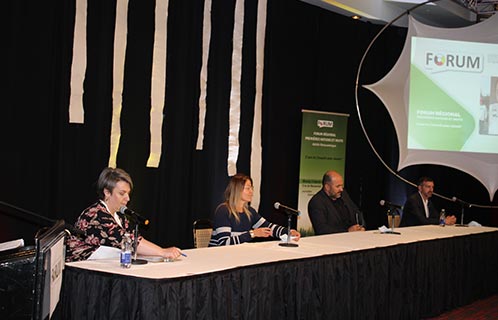
Several recommendations
A coffee discussion led to several recommendations to increase the participation of FNI members in the labour market.
- Create residences for students in training
- Create residences for FNIs in transition from communities to the city
- Create day-care services for FNI clientele undergoing skills development and support for integration into the LM.
- Develop francization training programs in the workplace
- Create a service trajectory tool for the integration of FNIs into the LM.
- Hold this event annually to maintain a continuum of services adapted to the needs of companies and increase the participation of FNI members in the LM.
- Develop partnerships between collaborators in order to promote on-the-job training in response to labor shortages, and thus gain faster access to certified training.
- Create liaison officer positions that would primarily support companies in staffing FNI HR;
- Create templates and/or adapt job offers to attract FNI workers;
- Create collaborations between players to hold “open days” for the public at different companies to showcase trades and encourage citizens to apply and see on-the-job training opportunities, advancement, benefits, work climate, etc…;
- Develop an awareness-raising tool for FNIs explaining in detail the aspect of wage taxation in an urban environment;
- Statute June 21 National Aboriginal Day as a paid holiday;
- Public awareness campaign on Aboriginal realities (culture shock, cultural week, etc.) to eliminate stereotypes about FNIs and promote a skilled Aboriginal workforce;
- Create a tool to identify qualified FNIs in various fields.

